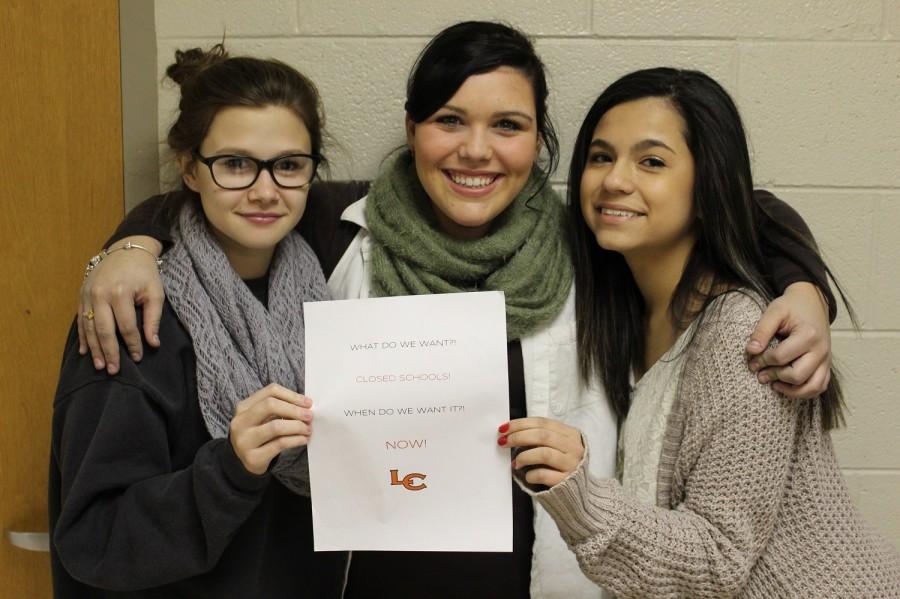To close or not to close
More stories from Bass Neel
To the dismay of many students, January was relatively uneventful in the weather category. Through the entire month, only a seventh of an inch fell in Loudon, which, in spite of black ice, is not enough to close schools. However, that didn’t deter displeased students from taking to Twitter to voice their opinion.
As many as 350 tweets were made in the wake of the school waiting so long to cancel last week. Many of them were expletive, many of them referenced a mysterious number of absentees needed to close, and many called for a response from Lenoir City Superintendent, Dr. Jeanne Barker.
“It doesn’t have to be a specific amount,” said Barker, “It’s about how dangerous [it is].” Contrary to what a lot of students on Twitter had speculated, there is no set-in-stone amount of snowfall or ill students to cancel school. When those decisions are tough, she has people she can communicate with to get a proper gauge of conditions. “Our Transportation advisor checks out the roads [before school],“ she said. Also, communicating with local superintendents is a large factor in decisions. “We text, we call… constantly. The communication is seamless.”
Making things even more complicated is the unpredictable weather. “Living in the valley, it’s always hard to rely on forecasts for information,” said Barker. With hit or miss weather, canceling becomes a guessing game. This particular guessing game has frustrated parents for a long time. Regardless if a student is a car-rider or a bus-rider, school-to-parent communication becomes hard in times of inclement weather. “When the temperature gets into single digits,” said Barker, “it takes a long time for buses to get working and warmed up. We have a generator that keeps the bus batteries running. Sometimes we’ll delay.” However with new technological advances like SkyLert, parents have never been reached more conveniently.
Another issue that influences Barker’s decisions is the bus sharing situation. For a large percentage of students at LCHS, their attendance relies solely on whether their bus is running or not, and a lot of those students ride a Loudon County bus. For sophomore Sydney Padgett, this problem is never more evident. “There’s always people who have younger siblings that go to Loudon County Schools,” said Padgett, “so personally, it’s not very convenient.” Barker has, however, worked hard to fix this problem, but with the current contracts, not much can change soon. “We are going to sit down and have a conversation. At this time, we don’t have any agreements,… but I’m hopefully we’ll work that out.”
For a lot of students, any decision that doesn’t close schools is unsatisfactory. “I never expect everybody will agree,” Barker said, “That’s part of being the decision maker.” Upon receiving the job, Barker was made aware of the complicated nature in being superintendent. “There will be things that you will not love. Snow, and summer,” said the previous superintendent, which were the most strenuous times for him. Even though no one will ever agree when it comes to closing schools, it’s her power, and so far it’s been carried out successfully.
